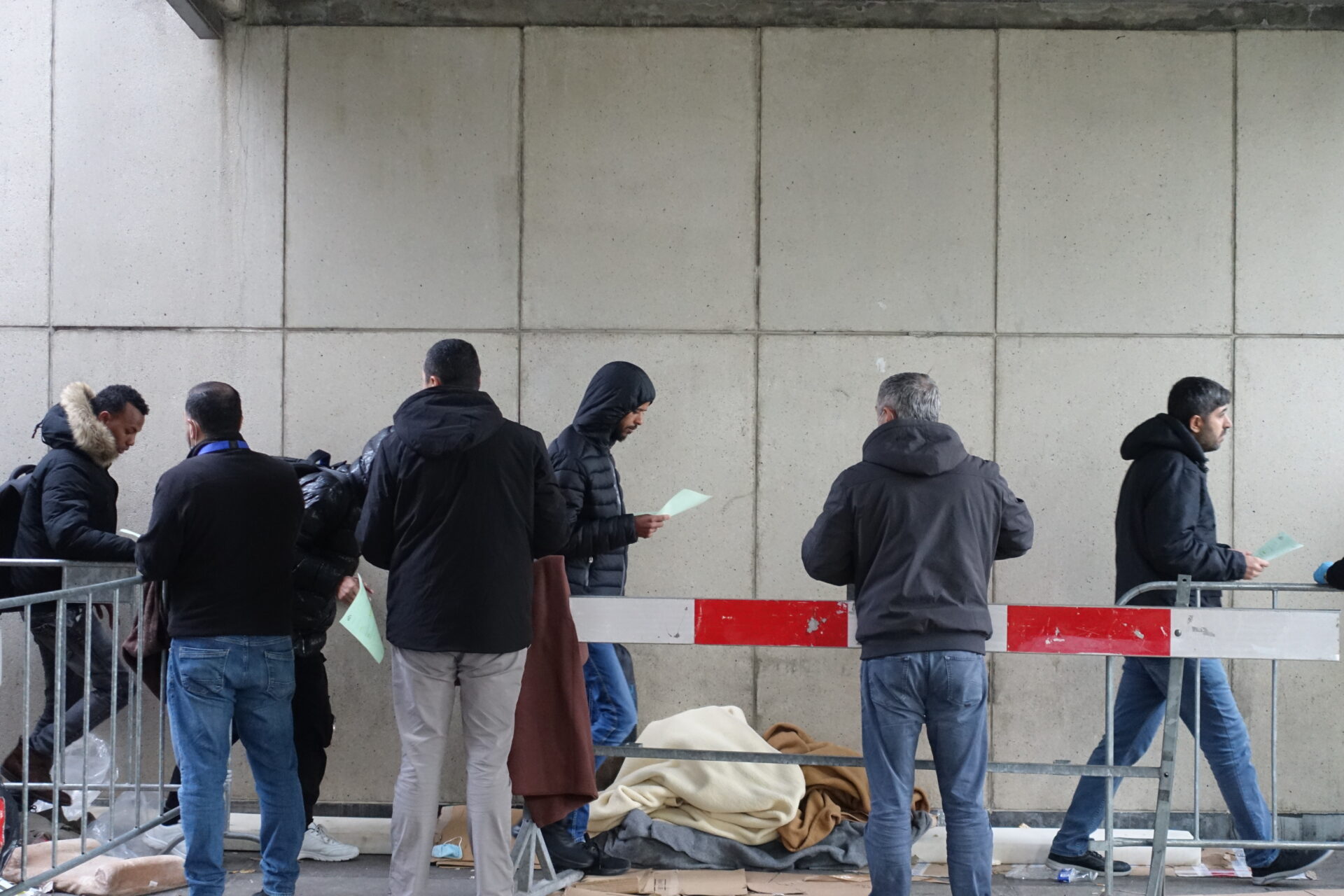The European Court of Human Rights (ECHR) has condemned Belgium's failure to comply with successive court rulings over failures to provide asylum seekers with reception, with the court stating that the latest case reveals a systemic failure.
At the national level, Belgian authorities have repeatedly come under fire for ignoring judgements against its management of the asylum reception crisis.
Belgium's failures have resulted in hundreds of people sleeping rough instead of getting legally-entitled shelter, even if they have taken their cases to the courts and have a verdict in their favour.
Now, a similar judgement has been made by the ECHR as the one made in November 2022, which condemned the Belgian state for failing to provide accommodation for an asylum seeker in spite of a court-ruled obligation.
Damage is done
The case in question is that of Camara v. Belgium, involving a man from Guinea who arrived in Belgium on 12 July last year, applied for asylum a few days later, but, like many others, was denied reception due to a chronic lack of reception places.
Belgium's Asylum Reception Agency, Fedasil, was ordered by the Brussels Labour Court to offer a reception place or face a fine of €1,000 per night, but the man was only given shelter almost four months later.
While Camara has now been provided with shelter, Strasbourg judges ruled that Belgium had violated Article 6 of the European Convention on Human Rights, which guarantees the right to a fair trial.

A family of asylum seekers being helped by a volunteer at the Asylum Helpdesk, where they get legal information when taking their case to court. Credit: Lauren Walker
"He was taken into the network after a provisional measure, meaning there was damage done, as he did live on the streets for months despite winning his case, and that is a violation of effective appeal," Thomas Willekens of Refugee Work Flanders (Vluchtelingenwerk Vlaanderen), told The Brussels Times.
"The judgement shows that the state is not guaranteeing a fair trial as people going to court to enforce their rights cannot do this in practice because the rulings are not being respected time and time again."
Setting dangerous precedent
The judges noted that the case is just one of many filed against Belgium for its failure to enforce judgments on the reception of asylum seekers. "The circumstances of the present case were not isolated incidents, but revealed a systemic failure on the part of the Belgian authorities to enforce final judicial decisions concerning the reception of applicants for international protection."
In response to the judgement, State Secretary for Asylum and Migration Nicole de Moor said the Belgian state does not deny that asylum seekers should receive reception, but argued that the Court decisions could not be implemented with the necessary speed because of the shortage of places in the reception network.
"The ECHR recognises that Belgium is making great efforts in a particularly difficult situation," her cabinet told The Brussels Times. The court did say it was not blind to the difficulties the government faced, but stressed that ignoring court rulings is "not compatible with the principle of the rule of law that underpins the Treaty system," adding that this systemic failure had "over-burdened the operation of a national court and that of the Court itself."
It also found that there had not been a “mere” delay on the part of the Belgian authorities, but rather a clear refusal to comply with the orders issued by the domestic court. "This for us confirms what we have been saying for a long time, namely that the state is endangering the foundations of the rule of law, but also that political will is lacking to solve this issue," Willekens noted.
However, he feared that this latest ruling will likely cause a ripple in the debate. "The question now is once again whether the government will change its attitude and approach or whether it will continue to further undermine the rule of law and signal to future governments that may have a completely different attitude that they can also so and get away with it, which is a very dangerous precedent to set."

